Foundation for Climate Research (FIC)
If you are the contact person for this centre and you wish to make any changes, please contact us.
Sustainability Researcher at the Foundation for Climate Research (FIC)
Climate change and meteorology consultant
Director of Research and Innovation at the Foundation for Climate Research and Associate Professor in the Department of Algebra, Geometry and Topology at the Complutense University of Madrid (UCM).
Climate change and meteorology consultant.
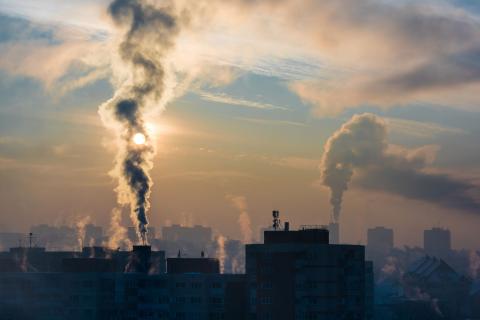
The Global Carbon Budget's projections for 2025 estimate that carbon dioxide (CO2) emissions from fossil fuels will reach a new all-time high of 38.1 billion tons, an increase of 1.1% over 2024. This global report—now in its 20th edition and to be presented at COP30 in Belém, Brazil—estimates that emissions in the United States and the European Union will grow this year, in contrast to the decline in previous years, partly due to weather conditions and higher energy consumption. The study is published in the journal Earth System Science Data in preprint format.

At the current rate of carbon dioxide emissions, the 1.5°C temperature increase limit set in the Paris Agreement will be exceeded in four years. This is one of the predictions of the Global Carbon Budget 2025, the global report on the carbon balance, now in its 20th edition, which will be presented at COP30 in Belém (Brazil). Pep Canadell, one of its authors, analyzed its findings at a briefing organized by SMC Spain.

A new epidemiological forecasting model could provide a better system for early temperature-related health warnings, according to a paper published in Science Advances. The model, called Forcaster.health, could provide mortality predictions at least 10.5 days before cold episodes and 8.3 days before hot episodes. The Universitat Pompeu Fabra and ISGlobal took part in its design.
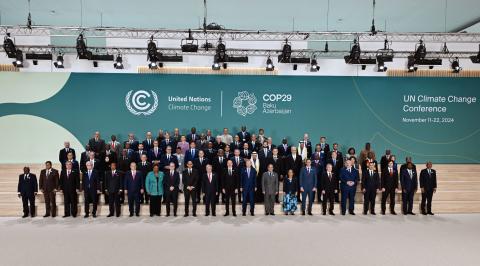
The largest carbon balance report shows that carbon dioxide emissions have not yet peaked and are projected to reach 37.4 billion tonnes by 2024. In a briefing organised by SMC Spain, Pep Canadell, one of the people in charge of the Global Carbon Budget 2024, analysed these data and what Donald Trump's return as US president means for climate action in the framework of COP29 in Baku.

There are still no clear signs that global fossil carbon dioxide (CO2) emissions have peaked, according to the 2024 Global Carbon Budget. The report - which is published in the journal Earth System Science Data in preprint format and will be launched at COP29 in Baku - estimates that these emissions will grow by 0.8% this year compared to 2023, to 37.4 billion tonnes of CO2. If this rate continues, there is a 50% chance that global warming will exceed the 1.5°C limit in six years.
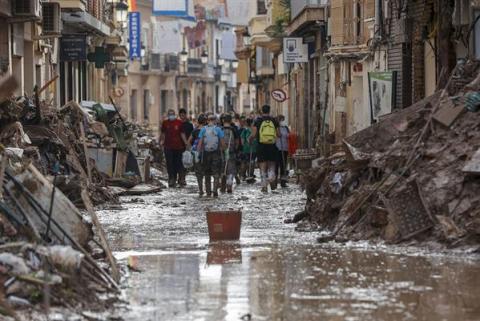
A study by a team from the ClimaMeter project claims that the intensification of rainfall from the DANA that devastated Valencia and other regions on 29 October is mainly attributed to human-induced climate change. Natural climate variability, on the other hand, probably played a modest role. According to the analysis, this DANA was driven by very exceptional weather conditions. The work also shows that the DANA-like depressions that cause flooding in the southeastern peninsular are up to 15 % wetter than they were in the past. In addition, temperatures are up to 3°C warmer, which favours storm formation in these events over the Mediterranean basin.
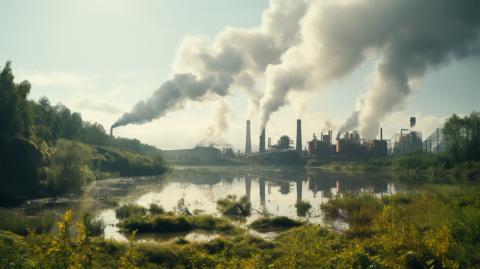
At the current level of emissions, there is a 50% chance that global temperatures will exceed the 1.5°C target consistently over seven years. This is one of the forecasts in the Global Carbon Budget 2023 report, which estimates that CO2 emissions from fossil fuels will reach record highs in 2023, reaching 36.8 billion tonnes, 1.1 % more than in 2022. The report, published in the journal Earth System Science Data, shows that emissions have decreased in the EU as a whole and in the United States, while they continue to increase in India and China.
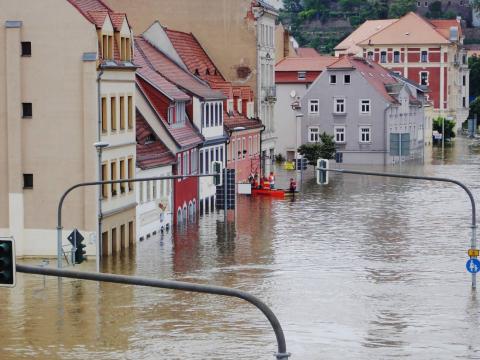
A study published in Nature has analyzed the presence of human settlements in flood-prone areas and their evolution worldwide since 1985. Until 2015, there was an increase of up to 122% in these settlements in flood-prone areas. According to their data, in many regions, the growth in the most hazardous areas is far outpacing development in non-exposed areas, especially in East Asia.
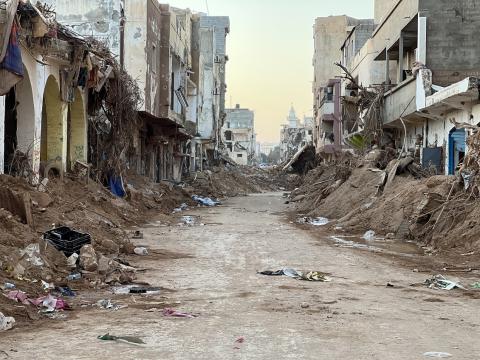
Las lluvias torrenciales caídas en Libia hace dos semanas fueron 50 veces más probables por el calentamiento global provocado por la acción humana. Algo similar ocurría con las lluvias caídas en Grecia, Bulgaria y Turquía, que fueron 10 veces más probables por el cambio climático, según concluye un estudio de atribución rápido de la Word Weather Attribution (WWA). La investigación apunta a que la tragedia en Libia se agravó por otros factores humanos, como construcciones en llanuras inundables y presas en mal estado. Los autores también analizaron las inundaciones registradas en España a principios de septiembre y concluyeron que precipitaciones tan intensas se esperan una vez cada 40 años.

An attribution study by World Weather Attribution (WWA) concludes that the heatwaves in Europe and North America this July would have been "almost impossible" without climate change. Over the past few weeks, southern Europe, parts of the United States, Mexico and China have experienced severe heatwaves with temperatures exceeding 45 °C. The WWA report notes that in China the heatwave was at least 50 times more likely due to the climate crisis.